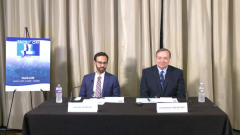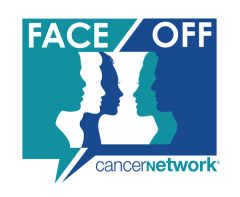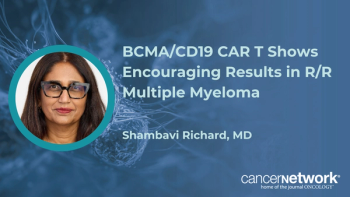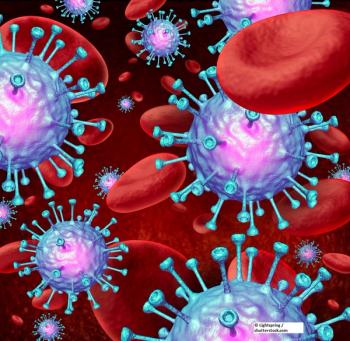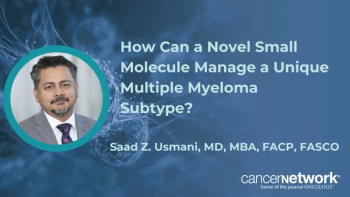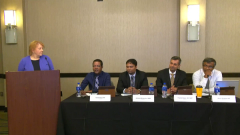
Relapsed/Refractory Multiple Myeloma: The KarMMa-3 Study
Expert Larry Anderson, Jr, MD, PhD, FACP, reviews data from the KarMMa-3 study of idecabtagene vicleucel in patients with relapsed/refractory multiple myeloma.
Episodes in this series

Transcript:
Judy Schreiber, PhD, RN: Let’s start with Dr Anderson’s presentation of [Paula] Rodríguez-Otero’s abstract.
Larry Anderson Jr, MD, PhD, FACP: Perfect, thank you. I’m presenting the results from the KarMMa-3 study of idecabtagene vicleucel CAR T cells or standard regimens in relapsed/refractory multiple myeloma by Rodríguez-Otero et al, published recently in the New England Journal of Medicine and also presented at the ASTCT [American Society for Transplantation and Cellular Therapy] Tandem Meetings. Some of these figures are from that conference. For example, the schema of the study was a 2:1 randomized controlled trial of idecabtagene vicleucel anti-BCMA CAR T-cell vs standard-of-care investigator’s choice. For every 1 standard-of-care patient, there were 2 randomized to idecabtagene vicleucel CAR [chimeric antigen receptor] T cells. These patients had received 2 to 4 prior regimens, including an IMiD [immunomodulatory imide drug], a proteasome inhibitor, and a CD38 antibody.
Similar to KarMMa, these patients generally had earlier-line therapy. Many had 2 prior lines compared with the prior KarMMa study, which required at least 3 prior, although many of these patients were refractory to daratumumab. Idecabtagene vicleucel was compared with standard of care, which included 5 different options: daratumumab-pomalidomide-dexamethasone, daratumumab-bortezomib-dexamethasone, ixazomib-Revlimid-Dexamethasone, Kyprolis-dexamethasone, or elotuzumab-pomalidomide-dexamethasone. The standard-of-care regimen was continued until progression or excess toxicity, but the patients who received CAR T cells were observed without further treatment.
The primary objective end point was progression-free survival with secondary end points of response rates, overall survival, and complete responses. The overall response rates were significantly higher for idecabtagene vicleucel CAR T: 71% overall compared with 42% for standard-of-care regimens in this population. Patients responding to CAR T included 39% achieving a complete or stringent complete response.
As far as progression-free survival, these are the Kaplan-Meier curves showing that the median progression-free survival with idecabtagene vicleucel CAR T after 2 to 4 prior lines was 13.3 months compared with only 4.4 months with investigator’s choice standard of care. The P value was obviously significant. Also, in this study, the standard-of-care patients were allowed to cross over and receive idecabtagene vicleucel CAR T at relapse. An overall survival end point will be difficult to interpret.
As far as subgroups and which patients tend to benefit more, it seems to be across the board beneficial. In some groups, fewer patients made the confidence interval less rigorous. For example, the older patients and those who had the higher stage III R-ISS [Revised International Staging System]. But for the most part, this was beneficial for those patients independent of sex, race, and age. It also included high-risk cytogenetics, which benefited, and extramedullary disease benefited compared with previous data with bispecific T-cell engagers. Patients with high tumor burden benefited. Those who were daratumumab refractory benefited. Those who were dual- or triple-class refractory benefited, although there weren’t many patients who were penta-refractory in this earlier-line study.
As far as toxicity, it was similar to results from the previous KarMMa study, in which the majority of patients had grade 3 or 4 cytopenias. Most patients experienced some level of cytokine release syndrome, or at least a high percentage did. But only a few percentage points had high-grade cytokine release syndrome, and only a few percentage points had high-grade neurotoxicity.
When we look deeper into the molecular responses with minimal residual disease [MRD] testing, of those that were valuable, 20% of patients who received CAR T achieved MRD negativity compared with only 1% in standard-of-care regimens. The time to response was similar between the groups despite the deeper and longer-lasting responses with CAR T. Overall, this CAR T regimen as an earlier line of therapy than previously approved did lead to a significantly higher overall response rate and deeper responses compared with standard of care.
Transcript edited for clarity.
Newsletter
Stay up to date on recent advances in the multidisciplinary approach to cancer.


